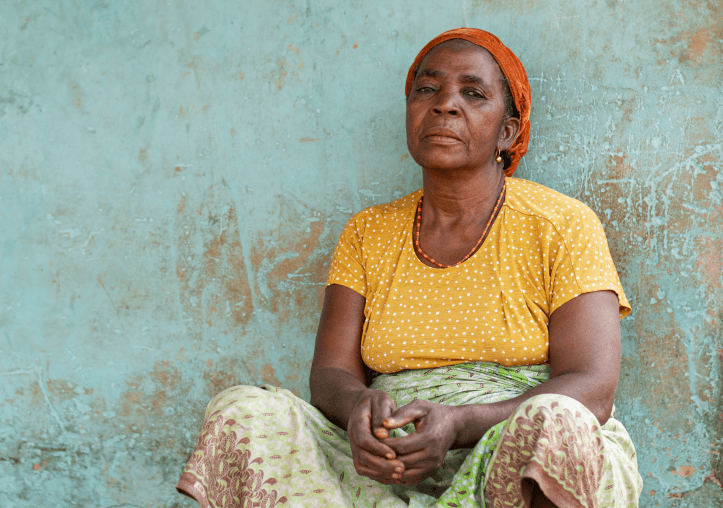
Right and Democracy
The participation of citizen and the respect of their fundamental human right are cardinal to the functioning of democracy. The Nigeria constitution and international human right instruments guarantee citizen right. CHRICED has been implementing diverse project to promote and protect the inalienable right of citizens.
Projects
Promoting Accountability in Universal Basic Education
Access to quality primary education is one of the many rights enshrined in Nigeria’s 1999 constitution as amended. As a platform of active citizens working for human rights, democracy and good governance, the Resource Centre for Human Rights & Civic Education (CHRICED) has been campaigning for the protection and promotion of the power of every Nigerian child of school age to quality and free Universal Basic Education (UBE). This campaign intensified in 2017, when CHRICED with support from the John D. and Catherine T. MacArthur Foundation flagged off the implementation of its innovative data-driven project titled; Social Mobilization for Accountability and Transparency in the Implementation of Universal Basic Education Funds.
Despite national and international human rights instruments that uphold the right to and the sanctity of human life, millions of women across the globe, continue to lose their lives in the throes of childbirth. Maternal mortality, which refers to the death of women within the cycle of birth and the postpartum period, is an ironic situation in which women on the verge of bringing forth new life lose their own lives in the process. The problem of maternal mortality presents a challenge of tragic proportions. If the dimension of infant mortality is added, the consequences of failed governance in the health sector in Nigeria is placed in bold relief. If the numbers of women and children dying as a result of health complications during and after childbirth, had been victims of war, the situation would have been described in no unmistakable terms as ‘genocide’.
Through a unique combination of engineering, construction and design disciplines and expertise, Concor delivers world class infrastructure solutions to customers and stakeholders across a broad range of industry sectors.
The project has therefore provided a platform for collective reflection and action on community accountability demands concerning the service delivery in the UBE sector. This project has also focused on mobilising communities to make accountability demands, and track projects, which are being implemented.
Several accountability problems and their effects on the delivery of quality essential education services in the project areas came to the fore in the course of the project.
The most fundamental of these is that several projects budgeted for by the Kaduna State Universal Basic Education Commission (KADSUBEB) are either uncompleted or entirely abandoned by contractors. Between 2017 and 2019, CHRICED monitored tracked projects worth about N800 million located in Kauru, Kubau and Zaria. According to the data obtained, many critical projects, including the construction of blocks of classrooms, procurement of seats and other teaching aids, were either executed halfway or not done at all. Though the convening provided by this project, demand-side actors in the communities have been able to ask questions and hold duty bearers accountable for below-par services in the UBE sector.
Community Driven Anti-Corruption Initiatives
Voter Education
CHRICED recognized the fundamental role election plays in the leadership recruitment process to ensure free fair and credible election, CHRICED implemented activities to enlighten key elections stakeholders; the electorate, youth and women
Combatting the Drivers of Forced Child Begging
The Almajiri system of education in Nigeria is a legacy that has existed for over ten centuries. However, for an education system whose origin dates back to around 11th century B.C., the degeneration of the network has led to the abuse of the rights of a child. A thorough analysis of the underlying principles, curriculum, structure and operations of the system indicates that the current practice of Almajiri system of education in northern Nigeria has maintained its original form for over a thousand years of its existence resulting in severe abuses of child rights.
A cursory evaluation of the current practice of the Almajiri system of education, clearly reveals that while the system has primarily retained its structure, curriculum and modus operandi, it has deviated significantly from its original values and underlying principles. It is saddening to note that the Almajiri system, which contributed immensely to the socio-political, economic, religious and moral development of northern Nigeria in its glorious years has now been reduced to a begging hub wherein children are forced into the streets to beg for alms to support their Koranic teachers and themselves.
Eradicating the Drivers of Forced Child Begging in Northern Nigeria (2019)
CHRICED is currently implementing a research and advocacy project aimed at influencing policies and pressuring government actors to take sustainable steps to address the problem of forced child begging. As such as proceeds from the premise that with the right knowledge, and goal-oriented advocacy, policymakers and governments at all levels, local and international NGOs, civil society organisations (CSOs) and international development partners would be able to take clearly defined steps in terms of committing efforts and resources towards reforming the Almajiri system. For interventions to have the desired effects, the direct beneficiaries (i.e., the Almajiri children and their teachers) and other critical stakeholders in target communities need to be fully engaged and involved all through the intervention process – from the planning to the implementation, up to monitoring and evaluation stages. If this is done, it will go a long way in addressing the issue of lack of awareness and support for intervention programmes by the target beneficiaries.
Against the backdrop of the lack of awareness and perceived ineffectiveness by target beneficiaries of state and non-state interventions on a forced child (Almajiri) begging in Nigeria;
- Government at all levels must ensure the enforcement of existing laws relating to forced child labour and street begging. To this end, the government should ensure that Almajiri school teachers who exploit children in any way must be prosecuted and subject to sentences that are commensurate with the crimes committed.
- The curriculum of Almajiri schools needs to be reviewed, reformed and restructured to reflect present-day realities and future aspirations of the society in which the Almajiri children live. In this regard, the new curriculum should be a blend of Islamic education, western education and life support skills that can help the children cope effectively with the realities of the modern world.
- There is also the need for the proper regulation and documentation of Almajiri schools. To this end, a particular unit should be opened in every state to collate data on the actual number of Almajiri schools and the children enrolled in those schools. Also, mallams willing to establish and operate Almajiri schools must register with the appropriate authorities to ensure proper supervision and periodic inspection.
- Similarly, some measure of parental responsibility has to be enforced. In this regard; local communities, religious institutions, governments at all levels, civil society groups and other critical stakeholders need to find ways of sensitising and mobilising the parents of these Almajiri children to be more responsible. This becomes necessary since no level of intervention by other stakeholders can substitute the role and place of parenting in a child’s upbringing.



























